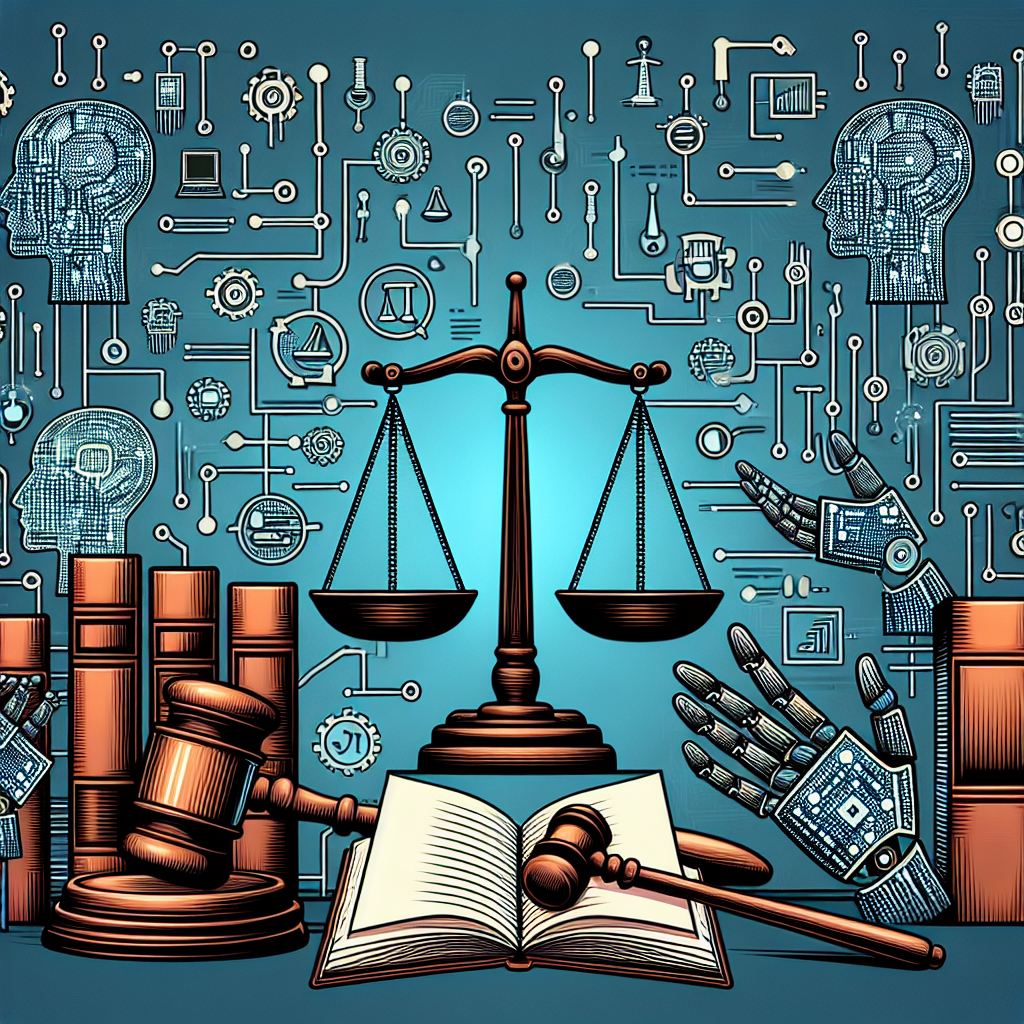The legal industry is undergoing a significant transformation with the advent of artificial intelligence (AI) and machine learning technologies. These technologies have the potential to revolutionize the way legal services are delivered, making processes more efficient, reducing costs, and improving outcomes for clients. However, implementing AI and machine learning in legal services comes with its own set of challenges. In this article, we will explore some of the key challenges that law firms and legal professionals face when incorporating these technologies into their practices.
One of the main challenges of implementing AI and machine learning in legal services is the issue of data privacy and security. Legal firms deal with highly sensitive and confidential information, and there are strict regulations in place to protect this data. AI and machine learning algorithms require large amounts of data to train and operate effectively, which can raise concerns about the security and privacy of client information. Law firms must ensure that they have robust data protection measures in place to safeguard sensitive data and comply with data privacy regulations.
Another challenge is the lack of understanding and expertise in AI and machine learning technologies among legal professionals. Many lawyers and legal professionals may not have the technical knowledge or skills required to effectively implement and use these technologies in their practices. Training and upskilling programs are essential to help legal professionals understand how AI and machine learning can benefit their work and how to integrate these technologies into their workflows.
Additionally, there is a challenge of resistance to change within the legal industry. Traditionally, law firms have been slow to adopt new technologies and processes, preferring to stick to traditional methods of delivering legal services. Implementing AI and machine learning requires a shift in mindset and a willingness to embrace new ways of working. Overcoming resistance to change and convincing stakeholders of the benefits of AI and machine learning can be a significant hurdle for legal firms.
Another challenge is the cost of implementing AI and machine learning technologies. Developing and deploying AI and machine learning solutions can be expensive, and smaller law firms may struggle to justify the investment. However, the potential benefits of these technologies in terms of increased efficiency, improved accuracy, and better client outcomes can outweigh the initial costs. Legal firms must carefully weigh the costs and benefits of implementing AI and machine learning to determine if it is a viable investment for their practice.
One of the challenges specific to the legal industry is the complexity of legal language and processes. Legal documents and contracts are often highly technical and nuanced, requiring a deep understanding of legal terminology and concepts. AI and machine learning algorithms must be trained on large datasets of legal documents to accurately interpret and analyze this complex language. Developing AI models that can effectively understand legal language and processes can be a challenging task that requires specialized expertise.
Furthermore, there is a challenge of bias and fairness in AI and machine learning algorithms. These technologies are only as good as the data they are trained on, and if the training data is biased or incomplete, the resulting algorithms may produce biased or unfair outcomes. In the legal industry, where fairness and impartiality are paramount, ensuring that AI and machine learning algorithms are free from bias is crucial. Legal firms must carefully evaluate the training data used to develop these algorithms and implement measures to mitigate bias and ensure fairness in their use.
Despite these challenges, the potential benefits of implementing AI and machine learning in legal services are substantial. These technologies have the ability to streamline processes, improve accuracy, and deliver better outcomes for clients. By addressing the challenges of data privacy and security, expertise and understanding, resistance to change, cost, complexity of legal language, and bias and fairness, legal firms can harness the power of AI and machine learning to transform the way they deliver legal services.
FAQs:
Q: How can legal firms ensure the privacy and security of client data when implementing AI and machine learning technologies?
A: Legal firms must have robust data protection measures in place, such as encryption, access controls, and regular security audits, to safeguard sensitive client information. They should also comply with data privacy regulations and ensure that AI and machine learning algorithms are designed to protect the privacy of client data.
Q: What training and upskilling programs are available to help legal professionals understand AI and machine learning technologies?
A: There are a variety of training programs and courses available that are specifically tailored to legal professionals looking to learn more about AI and machine learning. These programs cover topics such as the basics of AI and machine learning, how these technologies can be applied in the legal industry, and practical skills for implementing AI solutions in legal practices.
Q: How can legal firms overcome resistance to change when implementing AI and machine learning technologies?
A: Legal firms can overcome resistance to change by clearly communicating the benefits of AI and machine learning technologies to stakeholders, providing training and support for staff, and demonstrating the positive impact of these technologies on efficiency and client outcomes. It is important to involve key stakeholders in the decision-making process and address any concerns or objections they may have.
Q: What are some best practices for ensuring fairness and impartiality in AI and machine learning algorithms used in the legal industry?
A: Legal firms can ensure fairness and impartiality in AI and machine learning algorithms by carefully evaluating the training data used to develop these algorithms, testing the algorithms for bias, and implementing measures to mitigate bias and ensure fairness. It is important to monitor the performance of AI algorithms and make adjustments as needed to ensure that they are producing fair and unbiased outcomes.

